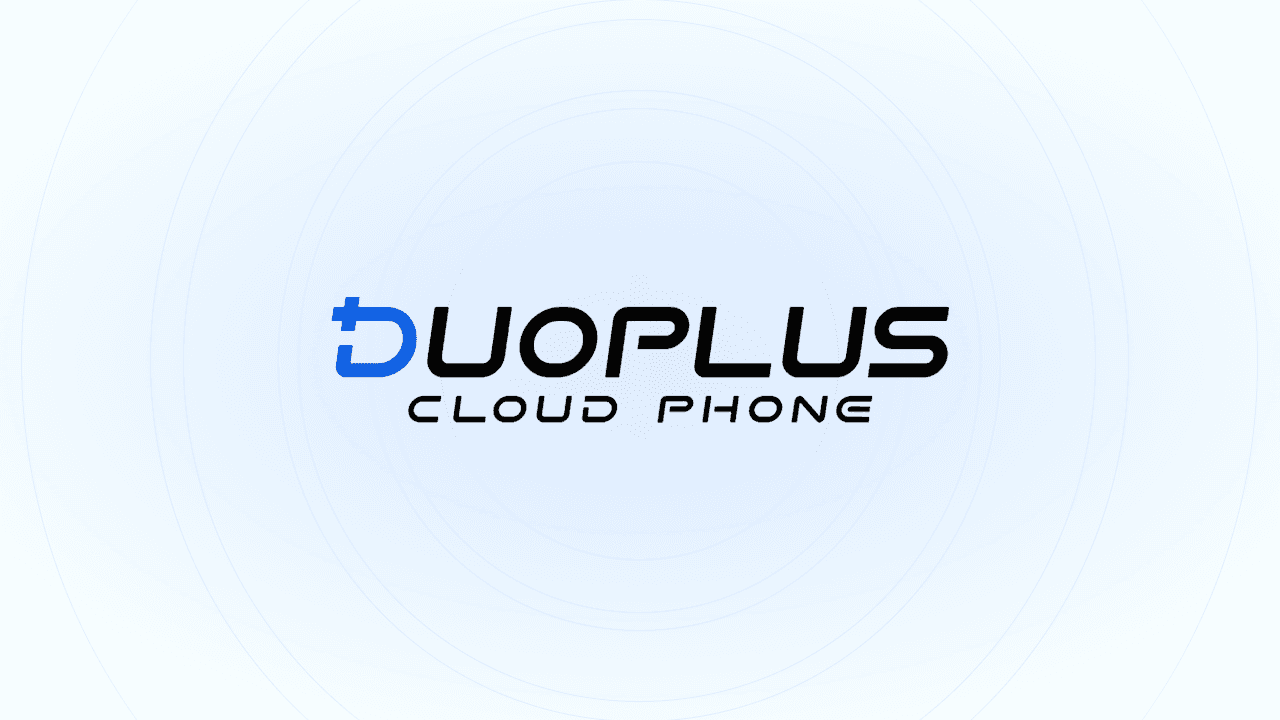Scaling Content Strategy with Programmatic SEO




David Foster
Tutorials
Mastering Programmatic SEO in WordPress: A Beginner's Guide to Scaling Your Content Strategy
In the ever-evolving world of digital marketing, staying ahead of the curve is crucial for businesses looking to maintain a competitive edge. One technique that's been gaining traction in recent years is programmatic SEO. This powerful approach allows you to create large volumes of targeted, high-quality content that can significantly boost your search engine rankings. If you're running a WordPress site and looking to scale your content strategy, programmatic SEO could be the game-changer you've been searching for.
What is Programmatic SEO?
Programmatic SEO is a method of creating and optimizing content at scale using automation and data-driven techniques. Instead of manually crafting individual pages or posts, you use templates and algorithms to generate a large number of highly targeted pages based on specific keywords or topics. This approach is particularly effective for businesses with large product catalogs, location-based services, or those targeting long-tail keywords in their niche.
The beauty of programmatic SEO lies in its ability to create content that's both relevant to your target audience and optimized for search engines. By leveraging data and automation, you can produce thousands of pages that address specific user queries, potentially capturing a significant portion of search traffic in your industry.
Why Programmatic SEO Matters for WordPress Users
WordPress powers over 40% of all websites on the internet, making it a popular choice for businesses of all sizes. While the platform offers numerous SEO plugins and tools, many WordPress users struggle to scale their content production effectively. This is where programmatic SEO comes into play.
By implementing programmatic SEO techniques on your WordPress site, you can:
Generate large volumes of targeted content quickly and efficiently
Improve your site's overall search engine visibility
Capture long-tail keyword traffic that your competitors might be missing
Provide valuable, specific information to your audience
Save time and resources on manual content creation
For businesses looking to dominate their niche in search results, programmatic SEO can be a powerful tool in their arsenal.
Getting Started with Programmatic SEO in WordPress
Implementing programmatic SEO in WordPress requires careful planning and execution. Here's a step-by-step guide to help you get started:
Identify your target keywords and topics: Begin by researching the keywords and topics relevant to your business. Look for patterns and variations that could be used to create multiple pages.
Create content templates: Develop flexible templates that can be populated with dynamic content based on your target keywords.
Set up a data source: Organize your data (e.g., product information, location details, or keyword variations) in a structured format like a spreadsheet or database.
Choose a programmatic SEO tool or plugin: There are several WordPress plugins and external tools available that can help you implement programmatic SEO. Research and select one that best fits your needs.
Generate and publish content: Use your chosen tool to generate pages based on your templates and data source, then publish them to your WordPress site.
Monitor and optimize: Regularly review the performance of your programmatically generated content and make adjustments as needed to improve results.
Best Practices for Programmatic SEO Success
While programmatic SEO can be incredibly powerful, it's important to approach it strategically to avoid potential pitfalls. Here are some best practices to keep in mind:
Focus on quality: Even though you're generating content at scale, ensure that each page provides value to your audience. Avoid creating thin or duplicate content that could harm your SEO efforts.
Use natural language processing: Incorporate natural language processing techniques to make your generated content sound more human and less robotic.
Implement proper internal linking: Create a logical structure for your programmatically generated pages and link them effectively within your site.
Optimize for user experience: Ensure that your generated pages are easy to navigate and provide a good user experience across all devices.
Stay up-to-date with search engine guidelines: Keep an eye on search engine guidelines and best practices to ensure your programmatic SEO efforts remain compliant.
Leveraging Data Intelligence for Programmatic SEO
One of the key components of successful programmatic SEO is access to high-quality data. This is where tools like those offered by Evomi come into play. As a Switzerland-based company known for its quality and reliability, Evomi provides a range of proxy solutions that can significantly enhance your data collection and analysis capabilities.
By leveraging Evomi's residential, mobile, and datacenter proxies, you can:
Gather accurate, location-specific data for your programmatic SEO campaigns
Conduct competitor research without being blocked or detected
Verify the performance of your generated pages from different locations and devices
Scale your data collection efforts to support large-scale content generation
With plans starting as low as $0.35 per GB for datacenter proxies and $2.15 per GB for residential and mobile proxies, Evomi offers cost-effective solutions for businesses of all sizes. Plus, their free trial allows you to test the waters before committing to a plan.
Conclusion: Embracing the Future of SEO
Programmatic SEO represents a significant shift in how businesses approach content creation and optimization. For WordPress users looking to scale their content strategy and dominate search results in their niche, it offers a powerful solution to an age-old problem.
By combining the flexibility of WordPress with the scalability of programmatic SEO and the data intelligence capabilities provided by tools like Evomi, you can create a content strategy that's both efficient and effective. As search engines continue to evolve and user expectations grow, embracing programmatic SEO could be the key to staying ahead of the competition and achieving long-term success in the digital landscape.
Remember, the goal of programmatic SEO isn't just to create more content – it's to create better, more targeted content that serves your audience and boosts your search visibility. With the right approach and tools, you can transform your WordPress site into a powerhouse of relevant, valuable content that drives traffic, engages users, and ultimately grows your business.
Mastering Programmatic SEO in WordPress: A Beginner's Guide to Scaling Your Content Strategy
In the ever-evolving world of digital marketing, staying ahead of the curve is crucial for businesses looking to maintain a competitive edge. One technique that's been gaining traction in recent years is programmatic SEO. This powerful approach allows you to create large volumes of targeted, high-quality content that can significantly boost your search engine rankings. If you're running a WordPress site and looking to scale your content strategy, programmatic SEO could be the game-changer you've been searching for.
What is Programmatic SEO?
Programmatic SEO is a method of creating and optimizing content at scale using automation and data-driven techniques. Instead of manually crafting individual pages or posts, you use templates and algorithms to generate a large number of highly targeted pages based on specific keywords or topics. This approach is particularly effective for businesses with large product catalogs, location-based services, or those targeting long-tail keywords in their niche.
The beauty of programmatic SEO lies in its ability to create content that's both relevant to your target audience and optimized for search engines. By leveraging data and automation, you can produce thousands of pages that address specific user queries, potentially capturing a significant portion of search traffic in your industry.
Why Programmatic SEO Matters for WordPress Users
WordPress powers over 40% of all websites on the internet, making it a popular choice for businesses of all sizes. While the platform offers numerous SEO plugins and tools, many WordPress users struggle to scale their content production effectively. This is where programmatic SEO comes into play.
By implementing programmatic SEO techniques on your WordPress site, you can:
Generate large volumes of targeted content quickly and efficiently
Improve your site's overall search engine visibility
Capture long-tail keyword traffic that your competitors might be missing
Provide valuable, specific information to your audience
Save time and resources on manual content creation
For businesses looking to dominate their niche in search results, programmatic SEO can be a powerful tool in their arsenal.
Getting Started with Programmatic SEO in WordPress
Implementing programmatic SEO in WordPress requires careful planning and execution. Here's a step-by-step guide to help you get started:
Identify your target keywords and topics: Begin by researching the keywords and topics relevant to your business. Look for patterns and variations that could be used to create multiple pages.
Create content templates: Develop flexible templates that can be populated with dynamic content based on your target keywords.
Set up a data source: Organize your data (e.g., product information, location details, or keyword variations) in a structured format like a spreadsheet or database.
Choose a programmatic SEO tool or plugin: There are several WordPress plugins and external tools available that can help you implement programmatic SEO. Research and select one that best fits your needs.
Generate and publish content: Use your chosen tool to generate pages based on your templates and data source, then publish them to your WordPress site.
Monitor and optimize: Regularly review the performance of your programmatically generated content and make adjustments as needed to improve results.
Best Practices for Programmatic SEO Success
While programmatic SEO can be incredibly powerful, it's important to approach it strategically to avoid potential pitfalls. Here are some best practices to keep in mind:
Focus on quality: Even though you're generating content at scale, ensure that each page provides value to your audience. Avoid creating thin or duplicate content that could harm your SEO efforts.
Use natural language processing: Incorporate natural language processing techniques to make your generated content sound more human and less robotic.
Implement proper internal linking: Create a logical structure for your programmatically generated pages and link them effectively within your site.
Optimize for user experience: Ensure that your generated pages are easy to navigate and provide a good user experience across all devices.
Stay up-to-date with search engine guidelines: Keep an eye on search engine guidelines and best practices to ensure your programmatic SEO efforts remain compliant.
Leveraging Data Intelligence for Programmatic SEO
One of the key components of successful programmatic SEO is access to high-quality data. This is where tools like those offered by Evomi come into play. As a Switzerland-based company known for its quality and reliability, Evomi provides a range of proxy solutions that can significantly enhance your data collection and analysis capabilities.
By leveraging Evomi's residential, mobile, and datacenter proxies, you can:
Gather accurate, location-specific data for your programmatic SEO campaigns
Conduct competitor research without being blocked or detected
Verify the performance of your generated pages from different locations and devices
Scale your data collection efforts to support large-scale content generation
With plans starting as low as $0.35 per GB for datacenter proxies and $2.15 per GB for residential and mobile proxies, Evomi offers cost-effective solutions for businesses of all sizes. Plus, their free trial allows you to test the waters before committing to a plan.
Conclusion: Embracing the Future of SEO
Programmatic SEO represents a significant shift in how businesses approach content creation and optimization. For WordPress users looking to scale their content strategy and dominate search results in their niche, it offers a powerful solution to an age-old problem.
By combining the flexibility of WordPress with the scalability of programmatic SEO and the data intelligence capabilities provided by tools like Evomi, you can create a content strategy that's both efficient and effective. As search engines continue to evolve and user expectations grow, embracing programmatic SEO could be the key to staying ahead of the competition and achieving long-term success in the digital landscape.
Remember, the goal of programmatic SEO isn't just to create more content – it's to create better, more targeted content that serves your audience and boosts your search visibility. With the right approach and tools, you can transform your WordPress site into a powerhouse of relevant, valuable content that drives traffic, engages users, and ultimately grows your business.
Mastering Programmatic SEO in WordPress: A Beginner's Guide to Scaling Your Content Strategy
In the ever-evolving world of digital marketing, staying ahead of the curve is crucial for businesses looking to maintain a competitive edge. One technique that's been gaining traction in recent years is programmatic SEO. This powerful approach allows you to create large volumes of targeted, high-quality content that can significantly boost your search engine rankings. If you're running a WordPress site and looking to scale your content strategy, programmatic SEO could be the game-changer you've been searching for.
What is Programmatic SEO?
Programmatic SEO is a method of creating and optimizing content at scale using automation and data-driven techniques. Instead of manually crafting individual pages or posts, you use templates and algorithms to generate a large number of highly targeted pages based on specific keywords or topics. This approach is particularly effective for businesses with large product catalogs, location-based services, or those targeting long-tail keywords in their niche.
The beauty of programmatic SEO lies in its ability to create content that's both relevant to your target audience and optimized for search engines. By leveraging data and automation, you can produce thousands of pages that address specific user queries, potentially capturing a significant portion of search traffic in your industry.
Why Programmatic SEO Matters for WordPress Users
WordPress powers over 40% of all websites on the internet, making it a popular choice for businesses of all sizes. While the platform offers numerous SEO plugins and tools, many WordPress users struggle to scale their content production effectively. This is where programmatic SEO comes into play.
By implementing programmatic SEO techniques on your WordPress site, you can:
Generate large volumes of targeted content quickly and efficiently
Improve your site's overall search engine visibility
Capture long-tail keyword traffic that your competitors might be missing
Provide valuable, specific information to your audience
Save time and resources on manual content creation
For businesses looking to dominate their niche in search results, programmatic SEO can be a powerful tool in their arsenal.
Getting Started with Programmatic SEO in WordPress
Implementing programmatic SEO in WordPress requires careful planning and execution. Here's a step-by-step guide to help you get started:
Identify your target keywords and topics: Begin by researching the keywords and topics relevant to your business. Look for patterns and variations that could be used to create multiple pages.
Create content templates: Develop flexible templates that can be populated with dynamic content based on your target keywords.
Set up a data source: Organize your data (e.g., product information, location details, or keyword variations) in a structured format like a spreadsheet or database.
Choose a programmatic SEO tool or plugin: There are several WordPress plugins and external tools available that can help you implement programmatic SEO. Research and select one that best fits your needs.
Generate and publish content: Use your chosen tool to generate pages based on your templates and data source, then publish them to your WordPress site.
Monitor and optimize: Regularly review the performance of your programmatically generated content and make adjustments as needed to improve results.
Best Practices for Programmatic SEO Success
While programmatic SEO can be incredibly powerful, it's important to approach it strategically to avoid potential pitfalls. Here are some best practices to keep in mind:
Focus on quality: Even though you're generating content at scale, ensure that each page provides value to your audience. Avoid creating thin or duplicate content that could harm your SEO efforts.
Use natural language processing: Incorporate natural language processing techniques to make your generated content sound more human and less robotic.
Implement proper internal linking: Create a logical structure for your programmatically generated pages and link them effectively within your site.
Optimize for user experience: Ensure that your generated pages are easy to navigate and provide a good user experience across all devices.
Stay up-to-date with search engine guidelines: Keep an eye on search engine guidelines and best practices to ensure your programmatic SEO efforts remain compliant.
Leveraging Data Intelligence for Programmatic SEO
One of the key components of successful programmatic SEO is access to high-quality data. This is where tools like those offered by Evomi come into play. As a Switzerland-based company known for its quality and reliability, Evomi provides a range of proxy solutions that can significantly enhance your data collection and analysis capabilities.
By leveraging Evomi's residential, mobile, and datacenter proxies, you can:
Gather accurate, location-specific data for your programmatic SEO campaigns
Conduct competitor research without being blocked or detected
Verify the performance of your generated pages from different locations and devices
Scale your data collection efforts to support large-scale content generation
With plans starting as low as $0.35 per GB for datacenter proxies and $2.15 per GB for residential and mobile proxies, Evomi offers cost-effective solutions for businesses of all sizes. Plus, their free trial allows you to test the waters before committing to a plan.
Conclusion: Embracing the Future of SEO
Programmatic SEO represents a significant shift in how businesses approach content creation and optimization. For WordPress users looking to scale their content strategy and dominate search results in their niche, it offers a powerful solution to an age-old problem.
By combining the flexibility of WordPress with the scalability of programmatic SEO and the data intelligence capabilities provided by tools like Evomi, you can create a content strategy that's both efficient and effective. As search engines continue to evolve and user expectations grow, embracing programmatic SEO could be the key to staying ahead of the competition and achieving long-term success in the digital landscape.
Remember, the goal of programmatic SEO isn't just to create more content – it's to create better, more targeted content that serves your audience and boosts your search visibility. With the right approach and tools, you can transform your WordPress site into a powerhouse of relevant, valuable content that drives traffic, engages users, and ultimately grows your business.

Author
David Foster
Proxy & Network Security Analyst
About Author
David is an expert in network security, web scraping, and proxy technologies, helping businesses optimize data extraction while maintaining privacy and efficiency. With a deep understanding of residential, datacenter, and rotating proxies, he explores how proxies enhance cybersecurity, bypass geo-restrictions, and power large-scale web scraping. David’s insights help businesses and developers choose the right proxy solutions for SEO monitoring, competitive intelligence, and anonymous browsing.





